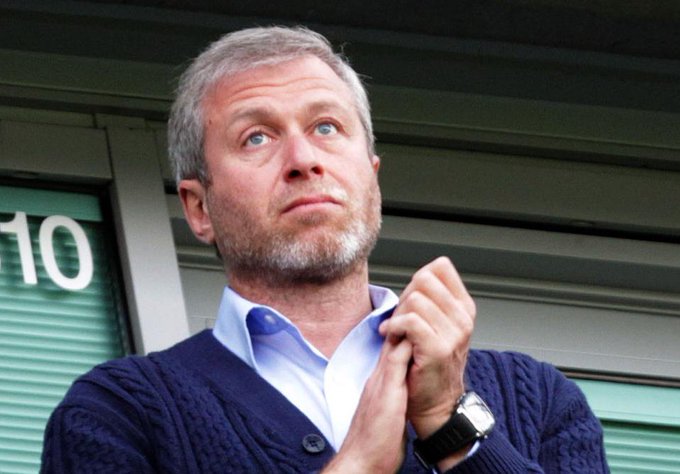According to sources close to Roman Abramovich, he experienced symptoms of suspected poisoning while attending peace talks on the Ukraine-Belarus border earlier this month.

The Chelsea FC owner reportedly suffered from stinging eyes and peeling skin but has since recovered.
According to reports, two Ukrainian peace negotiators were also harmed.
According to one story, the alleged poisoning was planned by Russian hardliners who intended to derail the discussions.
Shortly after the charges surfaced, Reuters quoted an unidentified US official as saying that intelligence indicated the men’s illnesses were caused by “environmental” reasons rather than poisoning.
Later, Ihor Zhovkva, a spokesman for Ukraine’s president, told the BBC that while he hadn’t spoken to Mr Abramovich, members of the Ukrainian delegation were “fine” and one had stated the news was “fake.”
Eyes piercing with pain
According to the Wall Street Journal, Mr. Abramovich’s and the Ukrainian negotiators’ conditions have improved since the March 3 incident, which included Ukrainian MP Rustem Umerov.
According to a source close to Mr Abramovich, he has recovered and is continuing to negotiate to stop the crisis in Ukraine.
The event sheds light on Mr. Abramovich’s alleged role as a middleman in Ukraine-Russia discussions. His specific role is unknown, but a spokesman for the oligarch earlier stated that his influence was “limited.”

Ukraine’s President, Volodymyr Zelensky, announced on Sunday that Mr. Abramovich had offered him assistance in de-escalating Russia’s invasion of the country.
At the beginning of the month, the Russian billionaire traveled between Moscow and Kyiv for multiple rounds of negotiations. During the trip, he allegedly encountered Mr Zelensky, but the Ukrainian president was unaffected and his spokesman had no information of the incident.
Meanwhile, the investigative journalism group Bellingcat said that Mr. Abramovich and the negotiators had symptoms “compatible with chemical weapons poisoning.”
“Eye and skin inflammation, as well as piercing pain in the eyes,” according to Bellingcat.
Mr. Abramovich was last seen in public on March 14, when he was photographed at Israel’s Tel Aviv airport.
Mr. Abramovich was sanctioned by the European Union and the United Kingdom earlier this month for alleged ties to Russian President Vladimir Putin, which he denies.
Mr Zelensky, on the other hand, is said to have asked the US to hold off on sanctioning Mr Abramovich because he could help negotiate a peace accord with Moscow.
Mr Abramovich played an early role in peace discussions, according to the Kremlin, but the process is now in the hands of the two countries’ negotiating teams.
On Tuesday, the two sides will meet in Istanbul for the first time in more than two weeks for face-to-face peace negotiations.

Roman Abramovich met with Russian and Ukrainian peace negotiators on the Ukraine-Belarus border on March 3 in the afternoon. What transpired afterwards is a complete mystery.
According to the investigative website Bellingcat, three of the delegates, including Mr Roman Abramovich, developed signs of nerve agent poisoning later that night.
Their skin was inflamed, their eyes were irritated, and they had significant pain behind their eyes that lasted all night.
According to Bellingcat, none of them had consumed anything other than chocolate and water.
Chemical weapons experts investigated the case and determined that it was an intentional use of a chemical agent.
We don’t know who did it, though. There is no admission of guilt.
People will undoubtedly ask if this is the work of the GRU, Russia’s military intelligence branch, which Britain decided was responsible for the Novichok poisoning in Salisbury in 2018.
There has been no quick response from Russia, and there is no evidence that they are to blame.
Someone, however, appears to have sought to issue a warning to those taking part in the peace discussions. This was not a deadly dose; rather, it was a cautionary dose.

It’s strange that an anonymous US official suggested environmental issues were to blame.
Nobody else was afflicted by these life-threatening illnesses. Hamish De Bretton-Gordon, a chemical weapons expert, told the BBC that environmental conditions were unlikely to have had a role.










